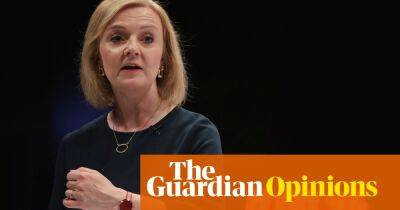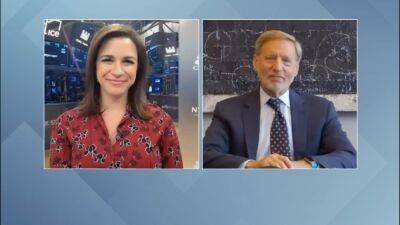Two sides of Trussonomics: tax cuts and higher interest rates
Liz Truss is short of heavyweight support for her plan to cut taxes immediately if she succeeds Boris Johnson as prime minister. Last week, when questioned on the Radio 4 Today programme, she came up with only one name: Professor Patrick Minford.
So it came as little surprise to find a letter appearing in the Daily Telegraph signed by a group of economists endorsing Truss’s proposal.
A letter to the editor has been a long-established feature of UK politics since 364 economists wrote to the Times in 1981 taking issue with Geoffrey Howe’s decision to raise taxes when the economy was in recession.
The Daily Telegraph letter supporting Truss’s tax plan has fewer signatories – just seven – and includes veterans of the Brexit campaign in 2016.
Graham Gudgin co-authored papers criticising the Treasury’s assessment of the economic costs of leaving the European Union, while other signatories include Gerard Lyons, economic adviser to Boris Johnson when he was London’s mayor, and Shanker Singham, of the Institute of Economic Affairs, a free market thinktank.
While not mentioning Truss by name, the letter makes the case for the immediate tax cuts being proposed by the foreign secretary.
But it also spells out a feature of Trussonomics the Tory frontrunner has kept quiet about until now: that the boost to demand from scrapping April’s rise in national insurance contributions would be offset by higher interest rates from the Bank of England.
“The policy solution necessitates a tighter monetary policy from the Bank of England to control inflation and a looser fiscal stance, focused on targeted tax cuts, to address weakening growth,” the letter says.
This would be the mirror image of what happened in 1981, when the higher taxes in the budget
Read more on theguardian.com







![Are Cardano [ADA] whales in hiding ahead of Vasil hard fork](https://finance-news.co/storage/thumbs_400/img/2022/8/18/37697_l4eg.jpg)










